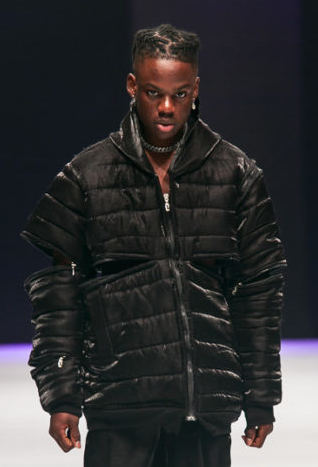
Rema (musician)
Divine Ikubor (born 1 May 2000), known professionally as Rema, is a Nigerian rapper, singer and songwriter. He gained initial recognition following the release of his 2019 song "Dumebi". That same year, he signed with D'Prince's record label, Jonzing World.[3] He received wider recognition for his 2022 single "Calm Down", which spawned a remix with American singer Selena Gomez that peaked at number three on the Billboard Hot 100,[4] and led the United States Afrobeats Songs chart for a record-setting 58 weeks.[5]
Rema
Divine Ikubor
1 May 2000[1]
Benin City, Edo, Nigeria
- Rapper
- singer
- songwriter
2018–present
4.02 million[2]
1.381 billion[2]
Early life[edit]
Divine Ikubor was born into a Christian family in Benin City, Edo State, Nigeria.[6] He grew up singing and rapping while he was in secondary school. He attended his primary and secondary school education at Ighile Group of Schools in Edo State.[7] His father and elder brother are deceased, and Rema was left to look after his mother.[1]
Personal life[edit]
Although Ikubor gained admission to study at the University of Lagos in 2022, he left the institution in 2023 due to a strike by the ASUU teaching union.[35][36]
On 28 September 2020, Rema tweeted accusations against the Peoples Democratic Party (PDP) over the death of his father, Justice Ikubor, who was a former chieftain of the party.[37][38]
Impact[edit]
Rolling Stone said "Rema has undoubtedly and proudly become an emblem of Afrobeats global rise."[39] Writing for Business Day Anthony Udugba remarked Rema has "expanded the horizons" of African musical impact on the global stage.[40] The Guardian Nigeria opined "As the Afrobeats landscape continues to flourish, Rema’s success sets a high standard, showcasing the global appeal and dominance of Nigerian music on the international stage."[41] The Native stated "It’s impossible to erase the mark he has left on Afrobeats history."[42] Victor Okpala said "Rema’s sound has cemented his place as a true musical trailblazer."[43] Many critics have praised him for breaking barriers and inspiring other African music artists.[44][45][46]